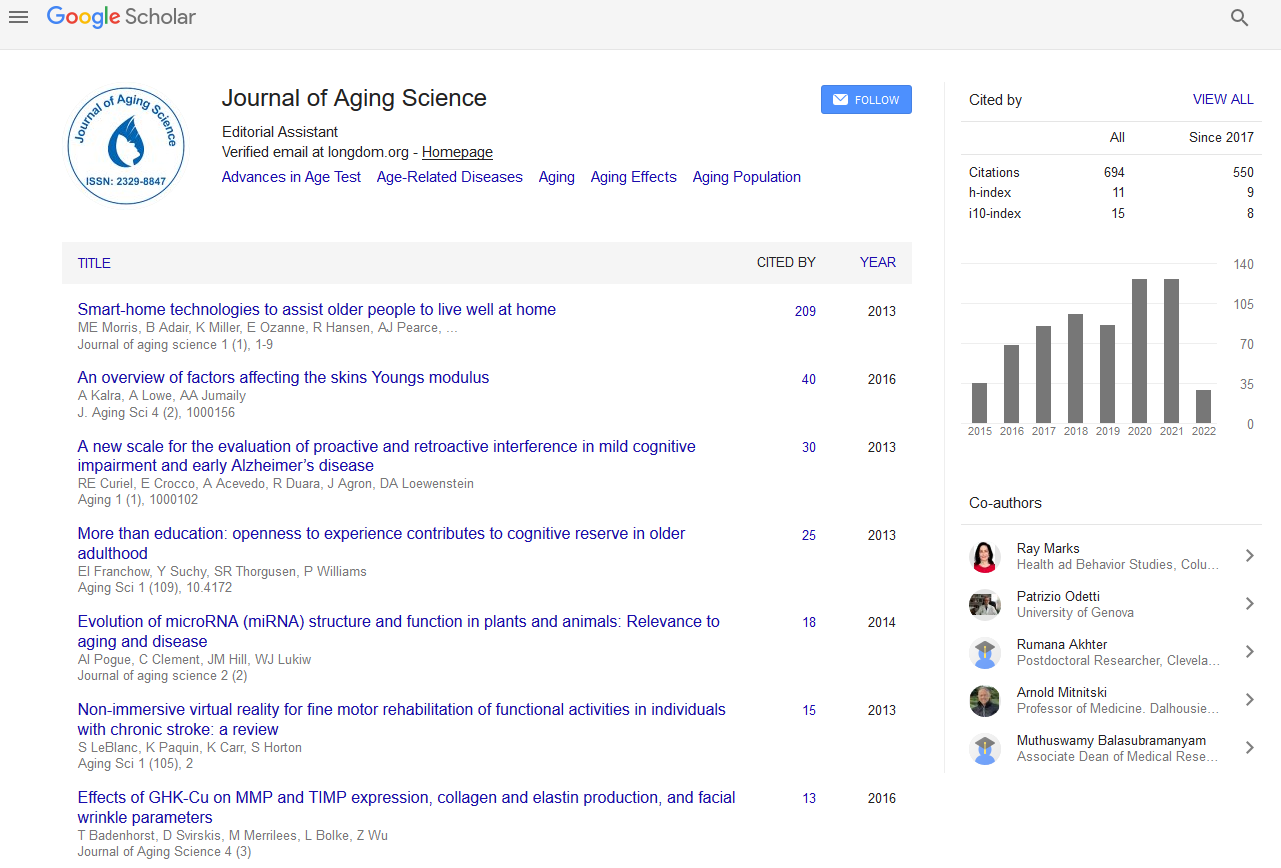PMC/PubMed Indexed Articles
Indexed In
- Open J Gate
- Academic Keys
- JournalTOCs
- ResearchBible
- RefSeek
- Hamdard University
- EBSCO A-Z
- OCLC- WorldCat
- Publons
- Geneva Foundation for Medical Education and Research
- Euro Pub
- Google Scholar
Useful Links
Share This Page
Journal Flyer

Open Access Journals
- Agri and Aquaculture
- Biochemistry
- Bioinformatics & Systems Biology
- Business & Management
- Chemistry
- Clinical Sciences
- Engineering
- Food & Nutrition
- General Science
- Genetics & Molecular Biology
- Immunology & Microbiology
- Medical Sciences
- Neuroscience & Psychology
- Nursing & Health Care
- Pharmaceutical Sciences
PATTERNS AND CORRELATES OF GRIP STRENGTH IN OLDER AMERICANS
International Conference on Aging & Gerontology
August 8-9, 2016 Las Vegas, USA
Kimberly Forrest, Marcy Leeds and Adelle Williams
Slippery Rock University of Pennsylvania, USA
Scientific Tracks Abstracts: Aging Sci
Abstract:
Muscle strength is a sensitive indicator of morbidity and mortality in older adults. Decreased muscle strength contributes to decreased physical functioning. Hand grip strength is a simple measurement, yet it signifies total body muscle strength. The current study evaluated the patterns and correlates of grip strength among older U.S. adults. Data from the 2011-2012 National Health And Nutrition Examination Survey (NHANES) were analyzed. Grip strength was measured using a digital dynamometer. Three tests were conducted for each hand, and the combined grip strength was used in the analysis. The SAS survey procedures were utilized to analyze the data. All analyses were based on the weighted data for a better representation of the U.S. population. This study included 1009 individuals (44.3% males) who were aged �?� 65 years and had gripped strength measurements. Age distribution was 31.5%, 27.2%, 16.2%, and 25.0% for 65-69, 70-74, 75-79, and 80+, respectively. Race distribution was 81.1%, 8.3%, 7.1%, and 3.5% for Whites, Blacks, Hispanics, and Asians, respectively. The mean grip strength was 71.7 kg in males and 44.6 kg in females, declining with increasing age (p<.0001). After adjusting for gender, age, and race, having a lower body weight and not being in good health status were significantly and independently associated with decreased grip strength. These findings suggest that grip strength could be a useful indicator for overall health assessment in older adult populations.
Biography :
Kimberly Forrest completed her Ph.D. of epidemiology from the Graduate School of Public Health at University of Pittsburgh 20 years ago. She has published nearly 50 research papers in the areas of aging, cardiovascular disease, women’s health, minority health, etc. Currently, she is a professor of public health and teaches epidemiology, biostatistics, international health and other courses related to public health.
Email: kimberly.forrest@sru.edu


